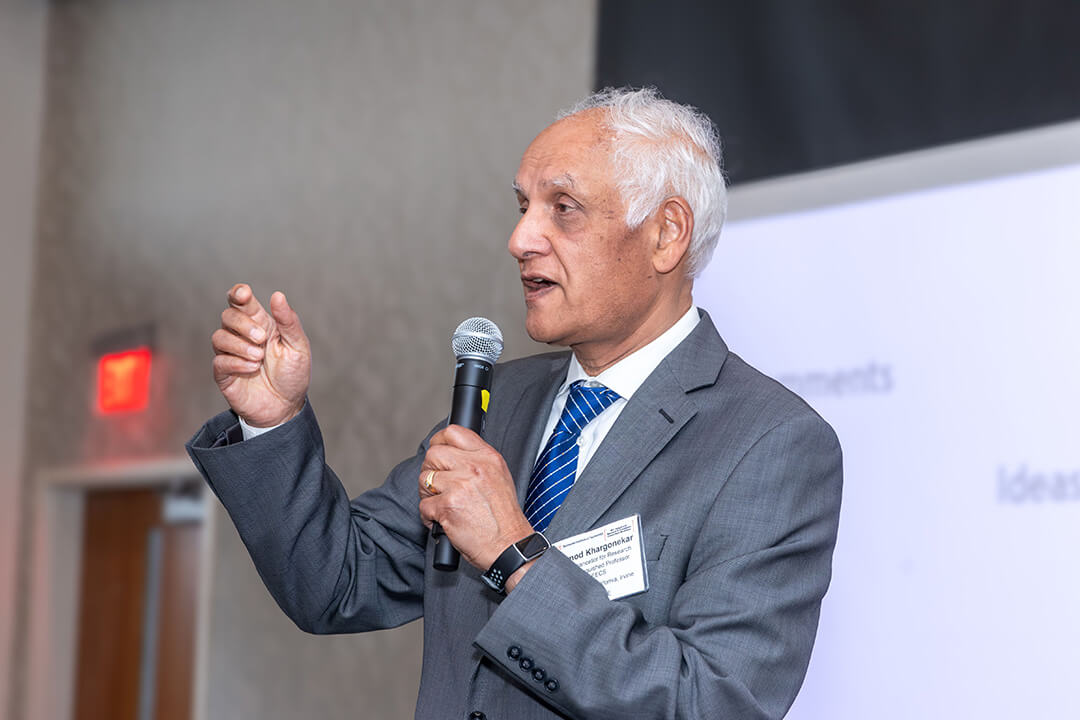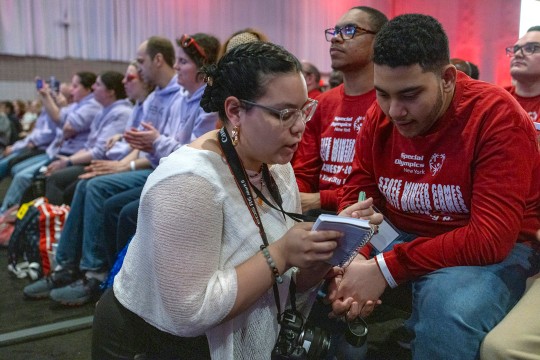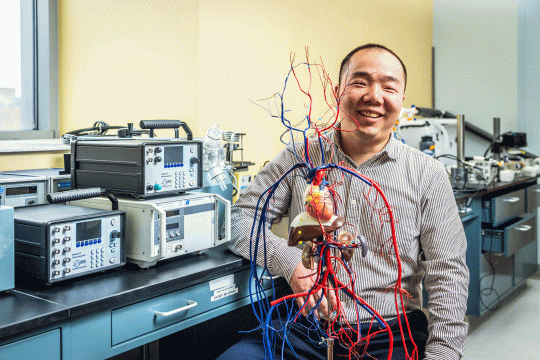RIT hosts AI Workshop to form industry-university consortium
First-time event brought together AI leaders from academia and industry
Julia Pham
Pramod Khargonekar was one of the event's keynote speakers.
Rochester Institute of Technology (RIT) recently hosted a forward-thinking two-day workshop focused on building a university-industry consortium dedicated to advancing responsible Artificial Intelligence (AI) research. The event, held last week on campus, brought together distinguished keynote speakers, industry leaders, and RIT faculty to explore the crucial partnership between academic research and industrial innovation, aiming to tackle complex business and societal challenges through collaborative AI advancements.
The consortium-building workshop featured a comprehensive program designed to foster dialogue and lay the groundwork for lasting collaborative relationships. Highlights included insightful keynote presentations from academic and industry pioneers. Dr. Pramod Khargonekar, Vice Chancellor for Research and Distinguished Professor at the University of California, Irvine, Peter Pianoto, a veteran with 26 years of experience in semiconductor manufacturing and operations at Micron, and Dr. Mallik Tatipamula, CTO of Ericsson Silicon Valley, each shared their perspectives on the evolving landscape of AI and the importance of partnerships between academia and industry.
“I was very impressed by the depth of discussions on industry-university collaboration to form a consortium,” said Khargonekar. “It was clear that the participants see a very large opportunity for mutually beneficial collaborations to advance high impact research, innovation, and education programs with a focus on current and future AI technologies. Such collaborations are essential to maximize the benefits of AI technologies while managing the risks.”
An expert panel further delved into strategies for cultivating a resilient AI innovation ecosystem, addressing both the exciting opportunities and potential challenges within the field. The program also featured specialized multidisciplinary technical sessions, jointly led by RIT faculty and industry experts. These sessions explored the practical applications of AI across critical domains such as Service Industry Innovation, Smart Manufacturing Solutions, Cybersecurity, and Ethical AI Development.
“Realizing AI’s transformative potential will require more than just technological advances," said Tatipamula. "It demands transdisciplinary education, research, and learning environments that bring together industry, academia, and government. This workshop at RIT is a timely step toward fostering the kind of collaborative ecosystem needed to drive responsible AI innovation and equip the next generation with the skills to shape its future impact.”
Dr. Naveen Sharma, Associate Dean for Faculty Affairs and Industry Engagement at RIT’s Golisano College of Computing and Information Sciences co-organized the event with Dr. Shal Khazanchi, Associate Dean of Research and Graduate Programs in RIT’s Saunders College of Business. Reflecting on the key takeaways from the event, Sharma remarked: “Key AI challenges – availability of good data and compute infrastructure – are shared across multiple business verticals from services to manufacturing to social science. Companies are seeking competitive advantages through accessing innovative AI-based solutions developed through proven academic research. This situation creates the potential for user-inspired research opportunities as well as experiential learning pathways for our students.”
By fostering these partnerships, RIT aims to play a leading role in shaping the future of AI innovation, ensuring its responsible and beneficial deployment for the betterment of both the regional and global community. “The ideas generated during the workshop will support the development of an RIT-industry consortium that fosters efficient, collaborative pathways for cutting-edge, responsible AI research and innovation to address industry and societal challenges,” said co-organizer Khazanchi.












